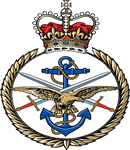Commemorated: | |||
| 1. Memorial: | Basra Memorial | Panel 37 and 64. Basra | |
| 2. Book: | The (1921) Masonic Roll of Honour 1914-1918 | Pg.129 | |
| 3. Memorial: | The (1940) Scroll - WW1 Roll of Honour | 32A GQS | |
Awards & Titles: | Cross of St George 3rd Class | ||
Family :
Son of the late Walter McAdam and Rachel Wardell McAdam; husband of Flora McLean McAdam, of 14, Caledonian Rd., Edinburgh.Service Life:
Campaigns:
- The First World War 1914-1918, World-wide.
| Unit / Ship / Est.: 1st Battalion Seaforth Highlanders |
1st Battalion August 1914 : in Agra, India. Part of the Dehra Dun Brigade in Meerut Division. 21 September 1914 : moved to France, landing at Marseilles on 12 October 1914. December 1915 : moved to Mesopotamia, landing at Basra late in the month. Formation was by now renamed 21st Brigade, 7th Indian Division. 4 February 1916 : owing to heavy casualties, formed the Highland Battalion with 2nd Bn, the Black Watch. 12 July 1916 : resumed former title. January 1918 : moved to Palestine, arriving Suez 13 January 1918. |
| Action : Mesopotamia |
At the outbreak of war the British, together with Indian troops, resolved to protect oil supply in the region by occupying the area around Basra at Abadan. This evolved into a series of campaigns towards Baghdad against the Turkish forces as Mesopotamia (modern Iraq) was part of the Ottoman Empire. Meetings in late 1914 and into 1915 led the Viceroy and Indian government at Simla to reconsider the limited involvement of troops and they decided to order further advances with a view to securing the Shatt-al-Hai, a canal connecting the Tigris and Euphrates river and potentially capturing Baghdad. The British government disagreed and wished to conserve forces for the Western front. The Viceroy was given permission to act as it wished, but told in no uncertain terms that no reinforcements should be expected.
The initial success experienced by the British and Indian forces quickly disintegrated in the face of Ottoman opposition. The Siege of Kut-Al-Amara began on 7th December with the besieging of an 8,000 strong British-Indian garrison in the town of Kut, 100 miles south of Baghdad, by the Ottoman Army. These campaigns produced few tactical benefits, indeed the catastrophic defeat at Kut in 1916 was a major setback. Badhdad was eventually taken in March 1917.
The conditions in Mesopotamia were dreadful. The climate, sickness and disease produced large losses in addition to battle casualties. About as many men died of disease as were killed in action. The Mesopotamia front was part of a strategy hoping for success at lower cost than the Western Front but no decisive victory was achieved.
Masonic :
| Type | Lodge Name and No. | Province/District : |
|---|---|---|
| Mother : | Fidelity No. 2061 E.C. | Bengal |
| Joined : | Star of Agra No. 1936 E.C. | N.W. Province |
Initiated | Passed | Raised |
6th May 1911 | 6th May 1911 | 6th May 1911 |
He was a joining member of the English Constitution when he became a member of Lodge Fidelity No. 2061 at Ranikhet on 6th May, 1911. His lodge of origin is noted to be Lodge 128, Scottish Constitution. He was only with Fidelity for a short time, resigning 30th November, 1911.
He joined Star of Agra Lodge No. 1936 on the 13th July, 1913 where he is listed as a Sergeant, based in Agra. The contribution record show that he was "Killed in Action Jan. 1916."
Source :
The project globally acknowledges the following as sources of information for research across the whole database:
- The Commonwealth War Graves Commission
- The (UK) National Archives
- Ancestry.co.uk - Genealogy, Family Trees & Family History online
- ugle.org.uk - The records of the United Grand Lodge of England including the Library and Museum of Freemasonry
Additional Source:
- Founder Researchers : Paul Masters & Mike McCarthy
- Researcher : Bruce Littley

